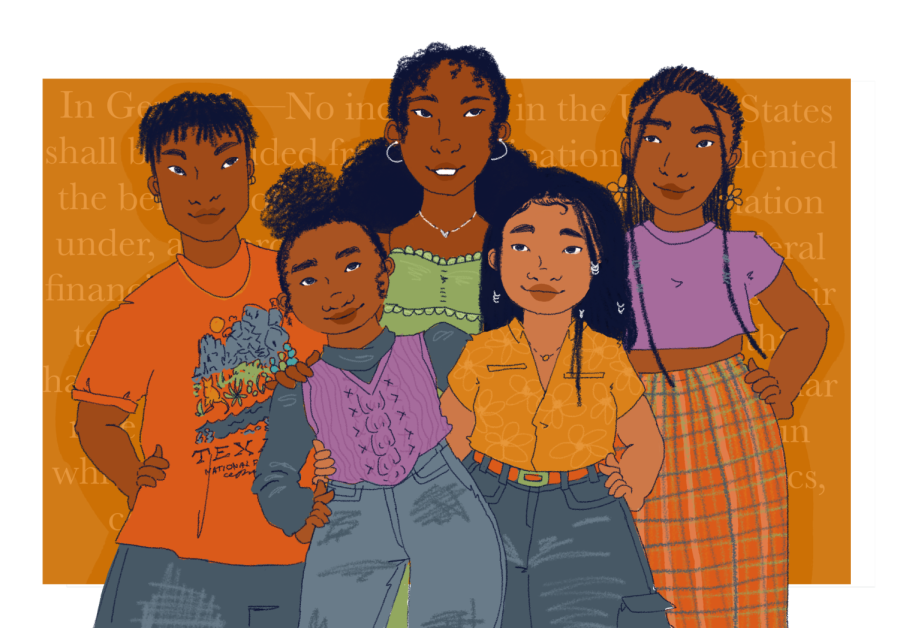UT students share experiences with hair-related discrimination following CROWN Act passage in US House
April 5, 2022
Editor’s Note: This article first appeared in the April 1, 2022 flipbook.
Before going to a job interview, Greg Phea pats his Afro down with water to make it appear smaller. He said he does this to keep attention away from his hair.
“There’s been so many instances where my mom has been like, ‘Hey, cut your hair because it’s going to bring too much attention or assumptions are going to be made,’ and to a degree, I think she’s been right,” said corporate communications senior Phea. “Which is why through my early adult to early 20s time, I just adjust my hair.”
But the CROWN Act could change the way Phea prepares for a job interview, as it bans discrimination based on someone’s hair texture and style related to their race. The act, which stands for Creating a Respectful and Open World for Natural Hair, passed in the U.S. House of Representatives on March 18 and will move to the U.S. Senate. The city of Austin announced in a press release Wednesday that it is “looking at ways to end hair discrimination,” and the passage of the city’s own CROWN Act will “build a stronger, more inclusive community.”
Some UT students, like Phea, said they’re glad the act passed in the House of Representatives, but they wish it had come sooner.
“It makes me feel comforted because of how inherently cultural the law seems to be, especially since there’s a lot of people who it’s intended to prevent discrimination towards,” Phea said.
The CROWN Act was first written by California Sen. Holly Mitchell and was signed into law in the state in 2019. Since then, other states, such as New York, Massachusetts, Washington and Maryland, have passed their own versions of the act.
In Texas, state Rep. Rhetta Andrews Bowers filed a CROWN Act bill in November 2020 before the Texas legislative session began in January 2021, but said she couldn’t address it due to time constraints.
Bowers, who is Black, said when she presented the bill to the State Affairs Committee for the first time, the committee voted against moving it forward.
“They weren’t Black and they did not understand because they had never experienced that type of discrimination,” Bowers said. “Some of my colleagues that are not Black came up to me and said, ‘I’m sorry, I am probably guilty of this type of discrimination.’”
Bowers said she is in the process of collecting stories from Texans about their experiences with hair-based discrimination to influence the state House of Representatives to pass the act. She also hopes it influences cities in Texas to pass their own versions of the act.
Honors biology senior Christine Ejiofor, who is Black, said she recently wore her hair in its natural state for the first time at 22 years old.
“I love the hairstyle I have now, which is shoulder-length knotless braids with beads at the end,” Ejiofor said. “It just really makes me feel so amazing and playful and like myself.”
Ejiofor said she internalized the discrimination she witnessed in her hometown of Alief, Texas, and never felt comfortable wearing her natural hair until now. However, Ejiofor said she wore a straight-haired wig when she interviewed for medical school.
“I know I (wore) that because I interviewed for med school, and I felt that it made me more palatable,” Ejiofor said. “But when I wear those hairstyles, I don’t think I feel my best.”
Phea said one of his mentors helped him realize that any place of employment that is not willing to accept his natural hair is not the place for him to work. He said wearing his hair in an Afro is an important part of his identity.
“I am someone who does meaningful work, and I am more than any stereotype that’s projected onto me,” Phea said. “I know I’m just as capable as the person next to me at anything I do, and that’s why I’ll wear my hair the way I want to, because that is me.”



